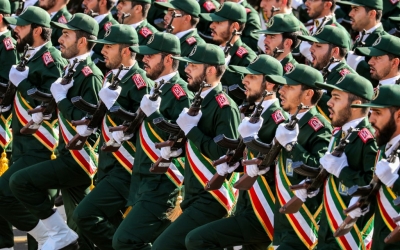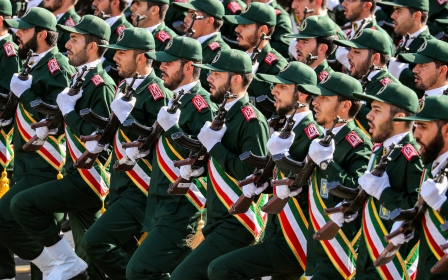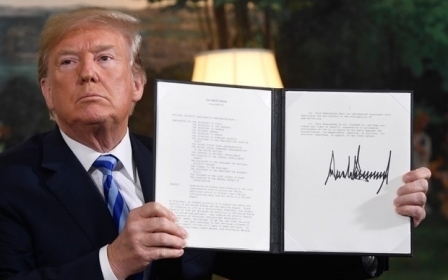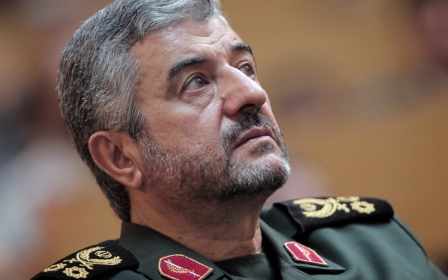US blacklisting of Iran's Revolutionary Guards comes into effect
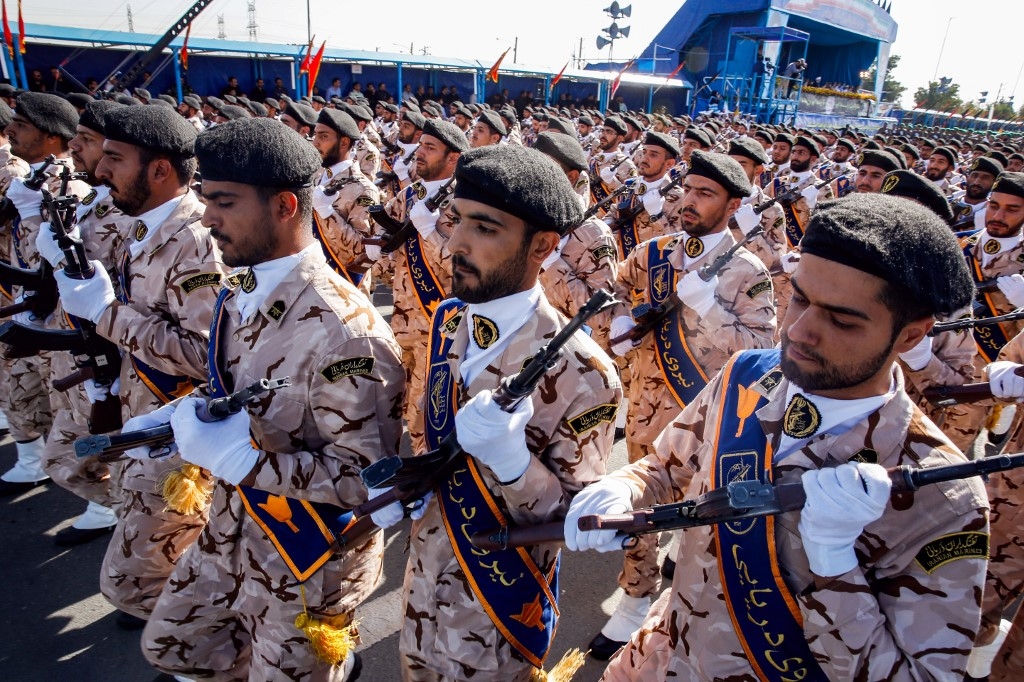
The United States's designation of Iran's Islamic Revolutionary Guards Corps (IRGC) as a foreign terrorist organisation has officially come into effect, a US State Department spokesperson confirmed.
The contentious decision, first announced on 8 April by US Secretary of State Mike Pompeo, marks the first time Washington has ever branded a state military institution as a foreign terrorist organisation (FTO).
The IRGC is an elite branch of the Iranian military made up of roughly 125,000 members.
Coming into effect on Monday, the designation allows the US to penalise anyone subject to American law who it determines has provided "material support or resources" to the IRGC, including the group's members or supporters.
The punishment for violating that broadly defined prohibition can range from having a US visa denied or revoked, to 20 years in prison.
But the State Department and the White House have been unclear about how the new rule will be implemented. The US government has also failed to specify how someone could cut ties to the IRGC in order to abide by the FTO designation.
After the initial decision was made public last week, State Department officials refused to go into what they called "hypotheticals" when pushed for details.
US President Donald Trump outlined the reasoning behind the move, however, accusing the IRGC as promoting terrorism "as a tool of statecraft".
"The IRGC is the Iranian government's primary means of directing and implementing its global terrorist campaign," Trump said in a statement.
That same day, Tehran shot back at the US, with the country's Supreme National Security Council decrying the FTO designation as an "unwise and illegal measure" that constitutes "a major threat to regional and international stability and peace".
The council named the United States Central Command (CENTCOM), a body that commands various US military units in the Middle East, among other regions, as a terrorist organisation. It also named the US government as a sponsor of terror.
On Wednesday, Iran's Foreign Minister Mohammad Javad Zarif also condemned Trump's remarks, sharing a video on Twitter during the US president's campaign in which he had highlighted Iran's role in fighting the Islamic State (IS) group.
"When @realdonaldtrump insisted that 'Iran is killing ISIS', exactly who did he think was doing the fighting & making the sacrifice?" Zarif wrote, using another acronym for IS.
"ISIS would've held two Arab capitals & fielded a Terrorist Army on Europe's doorstep had #IRGC not fought alongside brave peoples of Iraq & Syria," he continued.
The State Department's move comes amid ongoing US pressure on Tehran, after Trump pulled Washington out of an international nuclear agreement with the Iranian government in 2018.
Trump also reimposed economic sanctions on several key Iranian industries last autumn.
While the IRGC wields unparalleled power in Iran, it also has deep ties to various sectors of Iranian society, from the media, to disaster relief, industrial construction, shipping, telecommunications, domestic politics and foreign policy.
Even an Iranian scouts programme for children is run through the IRGC, leading experts to condemn the US designation as one that would likely affect ordinary Iranians more than the state itself.
Middle East Eye propose une couverture et une analyse indépendantes et incomparables du Moyen-Orient, de l’Afrique du Nord et d’autres régions du monde. Pour en savoir plus sur la reprise de ce contenu et les frais qui s’appliquent, veuillez remplir ce formulaire [en anglais]. Pour en savoir plus sur MEE, cliquez ici [en anglais].


